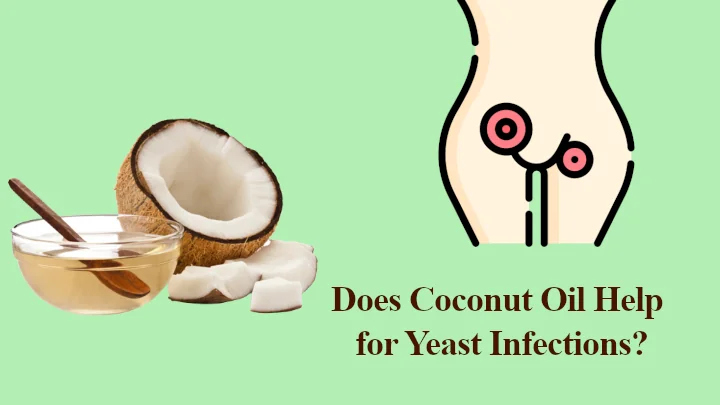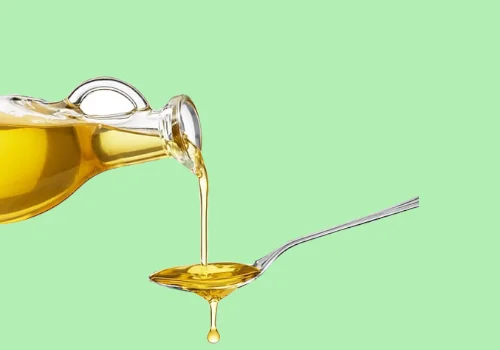Does Coconut Oil Help for Yeast Infections?

Many of you must be curious about does coconut oil help for yeast infections. Yeast infections are a common and generally unpleasant disease that affects many people, particularly women. These infections, characterized by symptoms such as itching, burning, and unusual discharge, can affect daily life.
In recent years, coconut oil has gained significant interest in the field of holistic health and wellness, where it has been promoted as a versatile treatment for a variety of diseases, including yeast infections.
In this article, we’ll explore does coconut oil help for yeast infections. So keep reading to find out if coconut oil is right for you!
Does Coconut oil Help for Yeast infections

Vaginal itching is a typical sign of yeast infections, leading some to recommend coconut oil for vaginal itching. Lauric acid, found in coconut oil, has antibacterial effects. In comparison, these qualities suggest that coconut oil may be beneficial, and scientific research supports its usefulness in treating Yeast Infections.
Some women believe that using coconut oil topically to relieve vaginal itching has helped them. Furthermore, coconut oil for yeast infections should be used cautiously, especially when taken internally.
A delicate balance of bacteria and yeast exists in the vagina, which can be upset by the presence of foreign substances.
Coconut Oil for Vaginal Itching
Coconut oil is frequently recommended as a natural cure for a variety of skin issues, including vaginal irritation. Its antibacterial and anti-inflammatory properties are thought to be beneficial. While some people say that using coconut oil relieves vaginal itching, it’s essential to proceed with caution and seek the advice of a medical professional.
Here are a few points to think about while using coconut oil to treat vaginal itching:
1. Antibacterial Effects
Lauric acid, found in coconut oil, has antibacterial effects. This indicates that it can fight certain bacteria and fungi that are irritating. However, the strains of bacteria that cause vaginal irritation can differ, and coconut oil may not be helpful against all of them.
2. Moisturizing Effect
Coconut oil has a naturally moisturizing effect. If dryness is causing your vaginal irritation, massaging the region with coconut oil may provide temporary relief. However, it is essential to ensure that the coconut oil is pure and free of any additives or scents that may aggravate the skin further.
3. Potential Vaginal pH Disruption
The vagina has a delicate pH balance that helps maintain a healthy environment by keeping harmful germs and fungi away.
Introducing foreign compounds, such as coconut oil, may upset this balance, leading to more severe problems. Before consuming coconut oil internally, it is essential to check with a healthcare expert.
Can Coconut Oil Cause Yeast Infections?
One common question can coconut oil cause yeast infections? Coconut oil is usually considered safe for external usage and is not known to cause yeast infections.
However, it is essential to distinguish between external and internal use. Coconut oil may be relaxing when applied physically. Still, when applied internally, it may upset the normal balance of vaginal flora, leading to infections.
Is Coconut Oil Effective Against Yeast Infections?
Yes, coconut oil is effective against yeast infections, but the safety of using coconut oil for yeast infections is highly individual. While some people may tolerate it well, others may have harmful effects or have their symptoms worsen.
Before applying coconut oil topically, perform a patch test and, most importantly, consult a healthcare expert before attempting any home cure, especially for a sensitive location like the vagina.
Coconut Oil for Yeast Infection Reviews
When researching coconut oil for yeast infections, it’s important to remember that reviews and testimonials are not a substitute for scientific evidence or professional medical advice.
Reviews can help get an idea of what other people have experienced with the product, but they should always be taken with a grain of salt since they are subjective and may not reflect reality. Ultimately, if you want to make sure your treatment is safe and effective, it’s best to consult your doctor first.
Conclusion
In conclusion, coconut oil’s natural antimicrobial properties make it a popular choice for those seeking alternative remedies; there is a lack of substantial scientific evidence to support its specific efficacy against yeast infections, mainly when applied internally.
References
- In vitro antimicrobial properties of coconut oil on Candida
- Virgin Coconut Oil (VCO) Enriched with Zn as Immunostimulator for Vaginal Candidiasis Patient
- Antifungal Activities of Virgin Coconut Oil on Candida albicans





